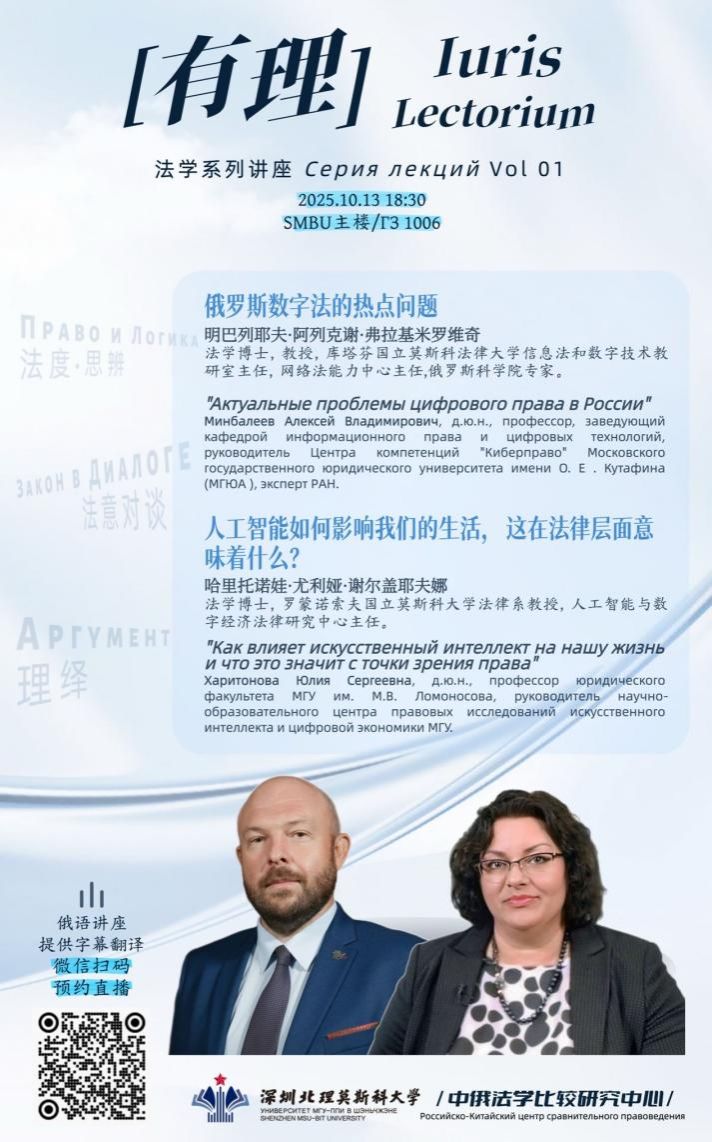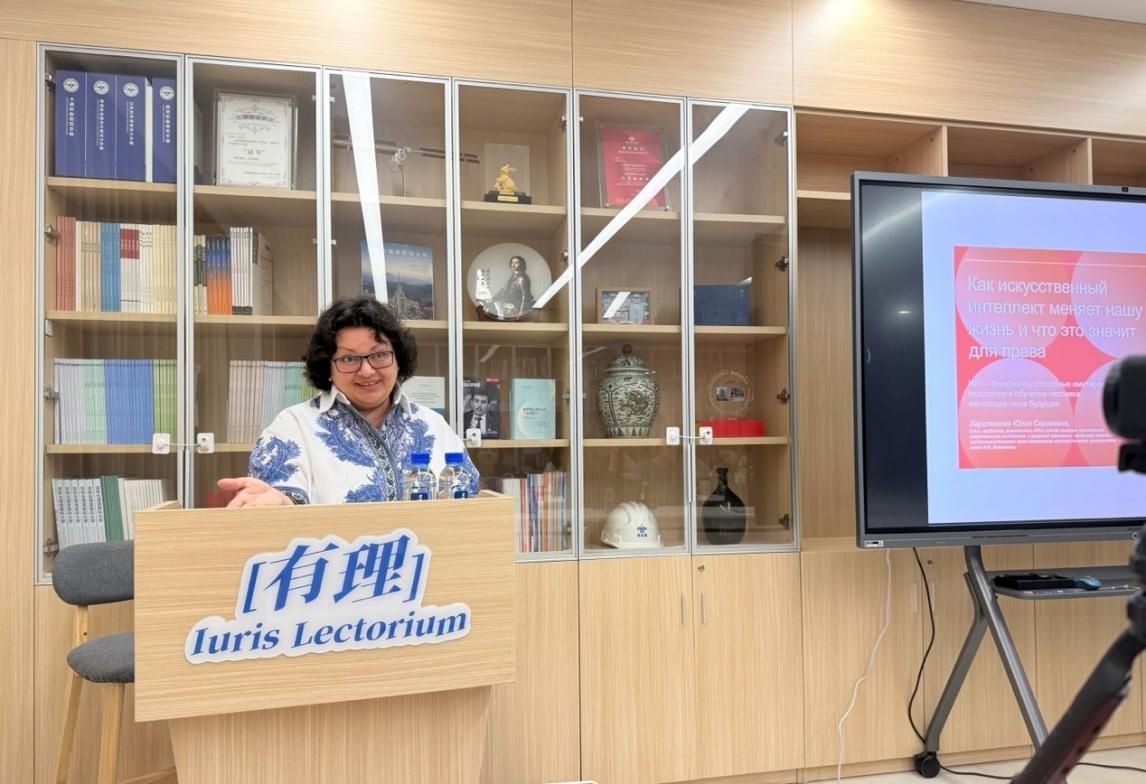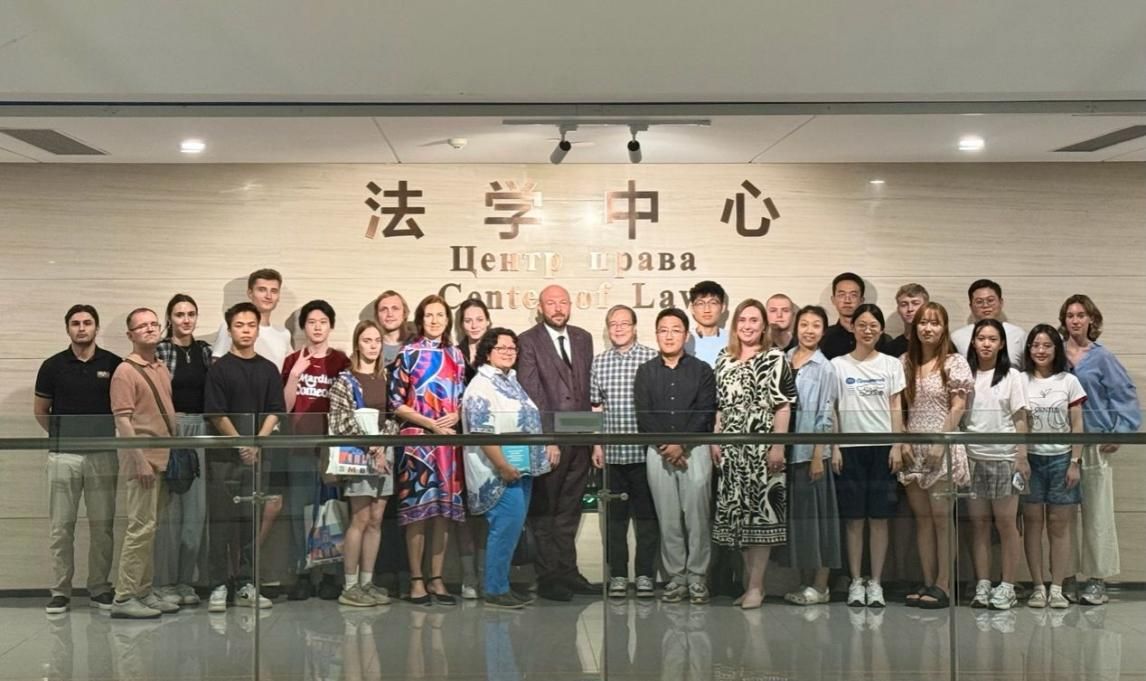On October 13, the first session of the “Rational·Iuris Lectorium” Law Lecture Series, hosted by the China-Russia Comparative Law Research Center at Shenzhen MSU-BIT University (SMBU), was officially launched. This inaugural lecture was initiated by Professor Yang Tianfang of the Comparative Law Research Center. The lecture hall was filled to capacity, while more than a thousand viewers watched the event through live streaming and on-demand video.
The lecture featured two distinguished legal scholars from top Russian universities: Professor Minbareyev Alexey from Moscow State Law University and Professor Kharitonova Yulia from Lomonosov Moscow State University. They offered in-depth yet accessible presentations on “The Latest Trends in Digital Law” and “Legal Challenges Arising from Artificial Intelligence”, respectively.

Minbareyev: Legal Framework Must Keep Pace with Digital Transformation
Professor Minbareyev highlighted that as national digital platforms continue to advance, comprehensive digitalization has been achieved in governance, education, healthcare, and other sectors. Personal “digital profiles” and online authentication systems are becoming increasingly common, fundamentally reshaping national governance models. He emphasized that digital transformation is not merely a technological endeavor but also a profound reshaping of legal institutions. Rapid advances in technologies such as big data and blockchain present urgent challenges in defining digital assets, protecting personal information, and regulating platform monopolies, all of which require timely legislative responses. While promoting technological development, the state must simultaneously enhance legal frameworks to ensure that digital governance proceeds steadily within the rule of law.

Kharitonova: AI Governance Requires Preemptive Legal Rules
Focusing on the legal challenges posed by artificial intelligence, Professor Kharitonova noted that AI is deeply embedded in societal systems, creating multiple challenges for traditional law, including accountability for algorithmic decisions and boundaries for data use. She emphasized that AI is evolving from a tool to a decision-making actor, necessitating clear legal status and conduct regulations. In Russia, pilot AI legislation is already underway in key sectors such as healthcare and transportation, exploring institutional frameworks for ethical review, algorithm auditing, and responsibility allocation. Professor Kharitonova stressed that legal rules must be established before technological deployment to prevent risks and ensure that technological development proceeds in harmony with the rule of law.

At the end of the lecture, Professors Minbareyev and Kharitonova engaged in a lively Q&A with attendees on topics including AI regulation, cross-border data flows, and the protection of minors’ privacy. Students reported that the lecture not only broadened their legal perspectives but also deepened their understanding of the critical legal considerations behind emerging technologies.
The “Rational·Iuris Lectorium” Law Lecture Series is a signature academic exchange platform developed by the China-Russia Comparative Law Research Center. It aims to continuously invite domestic and international scholars to share the latest research and policy practices on cutting-edge legal issues. The Center for Sino-Russian Comparative Law will continue organizing these lectures to provide a high-quality academic platform for students, legal professionals, and enthusiasts in the field of law.
